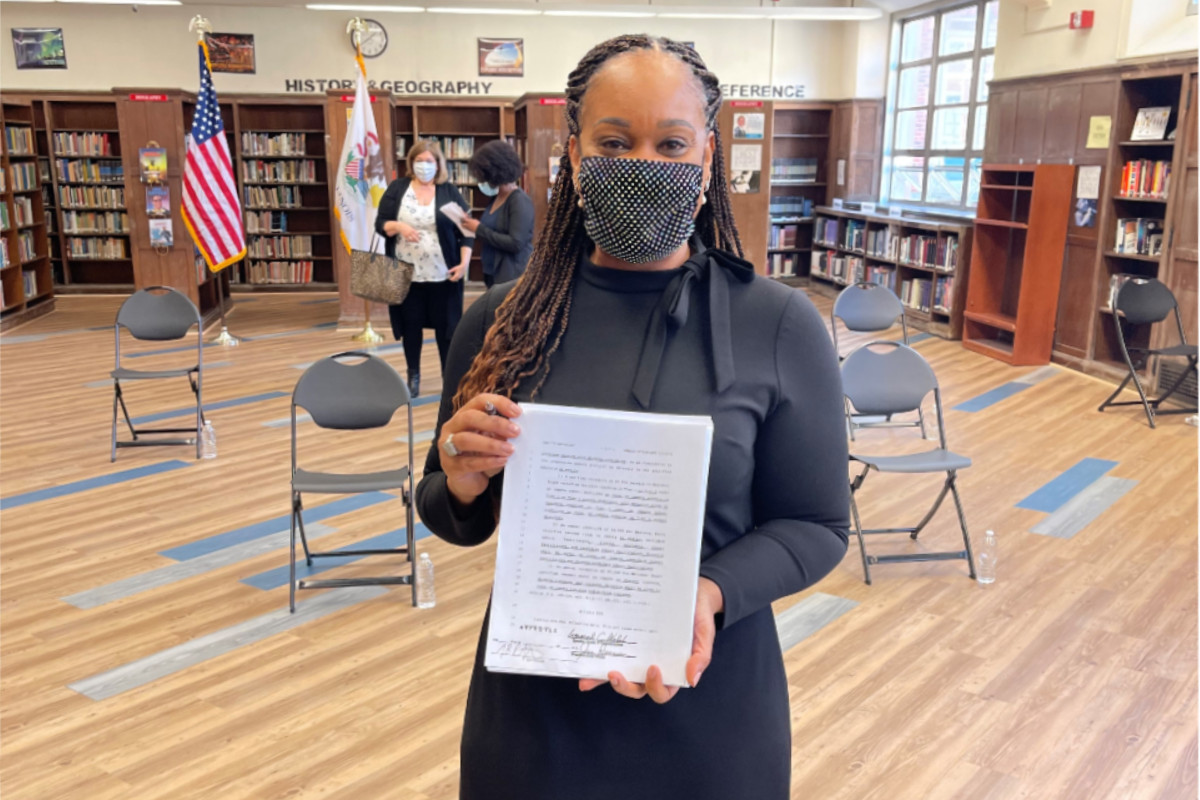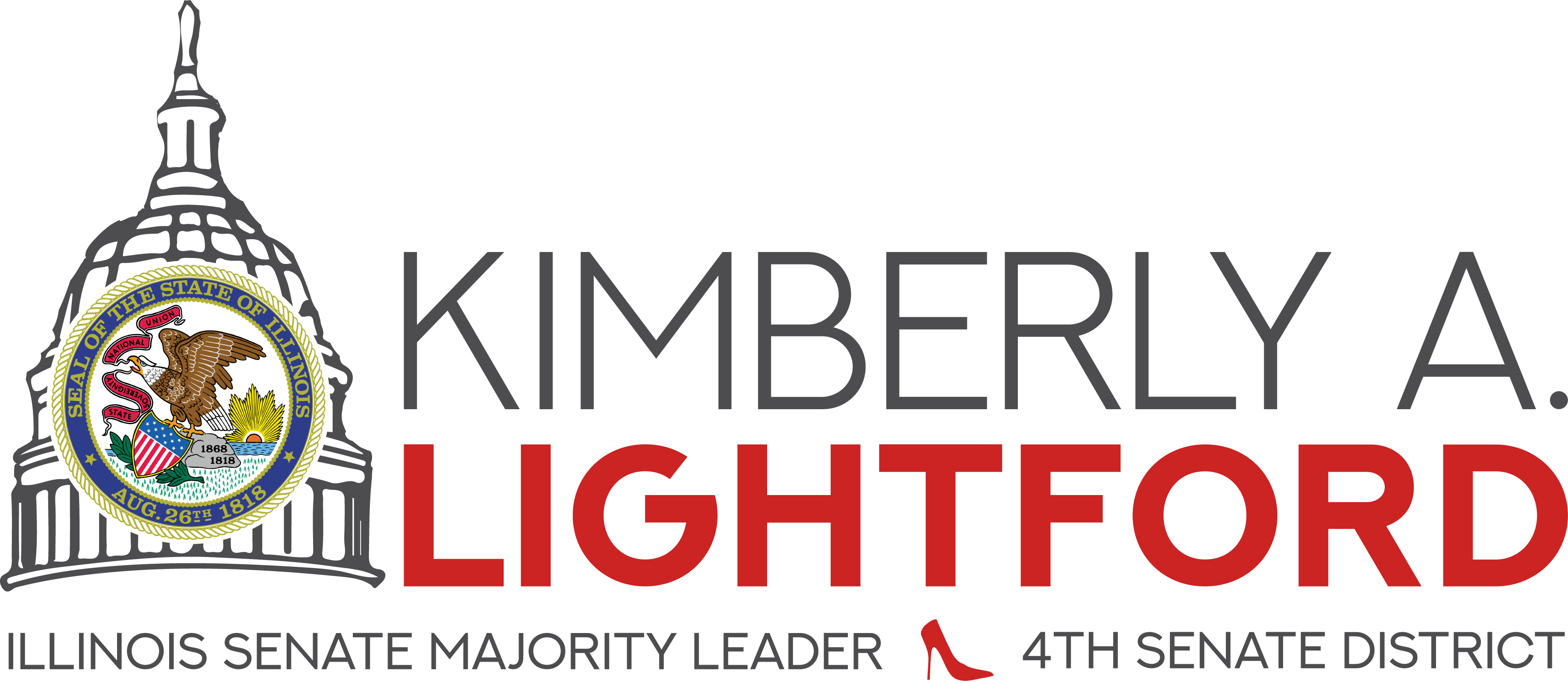New law aims to rid Illinois’ education system of systemic racism
 MAYWOOD – As part of the Illinois Legislative Black Caucus’ plan to rid Illinois of systemic racism, Senate Majority Leader Kimberly A. Lightford (D-Maywood) joined Governor J.B Pritzker as he signed House Bill 2170, the Education and Workforce Development Pillar she sponsored, on Monday.
MAYWOOD – As part of the Illinois Legislative Black Caucus’ plan to rid Illinois of systemic racism, Senate Majority Leader Kimberly A. Lightford (D-Maywood) joined Governor J.B Pritzker as he signed House Bill 2170, the Education and Workforce Development Pillar she sponsored, on Monday.
"House Bill 2170 is a step toward ridding Illinois of the damaging policies and procedures built into our state's systems of law and government that have created deep inequities and opportunity gaps in education for Black students," Lightford said. "It's time for our children to accelerate their education throughout the duration of their careers, from early learning to prestigious universities, followed by successful careers. I’m humbled to have led this effort and look forward to continuing to fight to ensure fairness and equality in Illinois for all our state’s residents."
House Bill 2170 addresses education and workforce development from early childhood to adulthood. To help ensure school readiness, it strengthens early intervention services and sets a kindergarten readiness assessment in statute. For students who may suffer from trauma, the legislation creates the Whole Child Task Force. This Whole Child Task for will help create a more equitable, safe, inclusive, and supportive environments for all children – but especially survivors of trauma. The legislation also creates a commission charged with reforming the Black history curriculum and how schools teach about other marginalized groups.
To help students prepare for higher education, the measure takes concrete steps to ensure Black and other marginalized students have the same opportunities to get into competitive colleges and universities. The legislation recognizes the benefit of students learning from Black teachers and other teachers of color and removes some of the barriers that prevent Black people and other people of color from becoming teachers.
At the state’s public community colleges and universities, the measure supports finding more race-conscious and equitable ways to fund higher education and provide financial aid for lower-income students. To support post-college adults, it explores the possibility of combining all of Illinois’ scattered workforce development initiatives and programs under a single agency.
The Illinois Legislative Black Caucus agenda consists of four legislative pillars that are necessary to dismantle systemic racism in Illinois. The Education and Workforce and Development legislation is the second pillar to become law, following criminal justice reform. The remaining pillars are economic access and opportunity and health care and human services.







